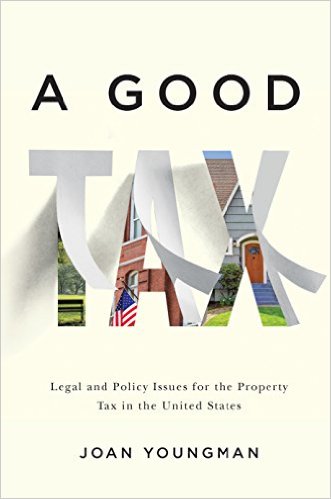Book Club: A Good Tax, Chapter 4

This post is a part of our Local Government book club series. Join us in reading A Good Tax: Legal and Policy Issues for the Property Tax in the United States by Joan Youngman. This week’s post focuses on the fourth chapter of the book.
Let’s talk about school funding and property tax. Of course maybe that’s misleading because in this chapter Youngman is quick to point out the basic school funding issue is not with the property tax itself but the inequity in the ability to raise local funds for schools across different districts- “a local tax problem.” No matter the tool- property tax, income tax, sales tax- most impoverished areas restricted to raising their own funds simply cannot support an adequate public school system. Youngman writes, “Some transfer of external resources is essential for districts that cannot fund their vital services independently”. She goes on to point out this is where consensus ends. From here the debate begins- is equal fair; how should funds be redistributed; and what happens with control.
California really provides an interesting look at the centralization of school funding. While Indiana was implementing the property tax reform of the Bowen administration in the 1970’s, California was also going through some drastic changes. A famous California Supreme Court case in 1971, known as Serrano, deemed the disparity in the school budgets raised by local property taxes unconstitutional. California consequently remedied this by centralizing school finance.
“Instead of districts setting their budgets on the basis of local revenues, budget decisions were made for each district at the state level. The initial phase of school finance reform in California focused strongly on equalization of basic funding, with the very first judicial decisions seeking to limit variations in per-pupil spending across the state to no more than $100.”
At the same time as the school reform, California voters were leading property tax limitations as well. Remember Prop 13 from chapter 3. This further centralized property taxes in California with the state governing local school budgets, the property tax and rate and the distribution of the property tax.
While centralization seems like a solution for equity, it has side effects too. With the funding, authority and responsibility shifts. Young also points out, “It exposes school budgets to new political pressures” as school funding is just one of many state needs. And these two changes can make it a challenge to keep parents involved if they perceive they have little to no influence in the policies that shape their child’s education. In Indiana, school funding is not this centralized. School budgets are funded in part by the State Legislature through state taxes and in part locally through property taxes. Check out this article from Chalkbeat to learn more about school funding in Indiana.
Communities and individuals are passionate about their schools, and Youngman goes on to discuss when regulations or centralization limits local school budgets in the name of equality, communities and parents in wealthier districts often find work-arounds. Sometimes this supplemental funding is by a referendum rate or less formal like parent/teacher organizations fundraising.
The school funding debate is far from over as the struggle with issues like equalization vs. adequacy and centralization vs. local autonomy. How are the needs of both growing and declining districts; rural, urban and suburban schools; and impoverished areas met? There’s a school funding bill in the current legislative session, HB 1009. Follow that bill to see what changes may be coming to Indiana school funding.
Tamara Ogle, Regional Community Development Educator, togle@purdue.edu



